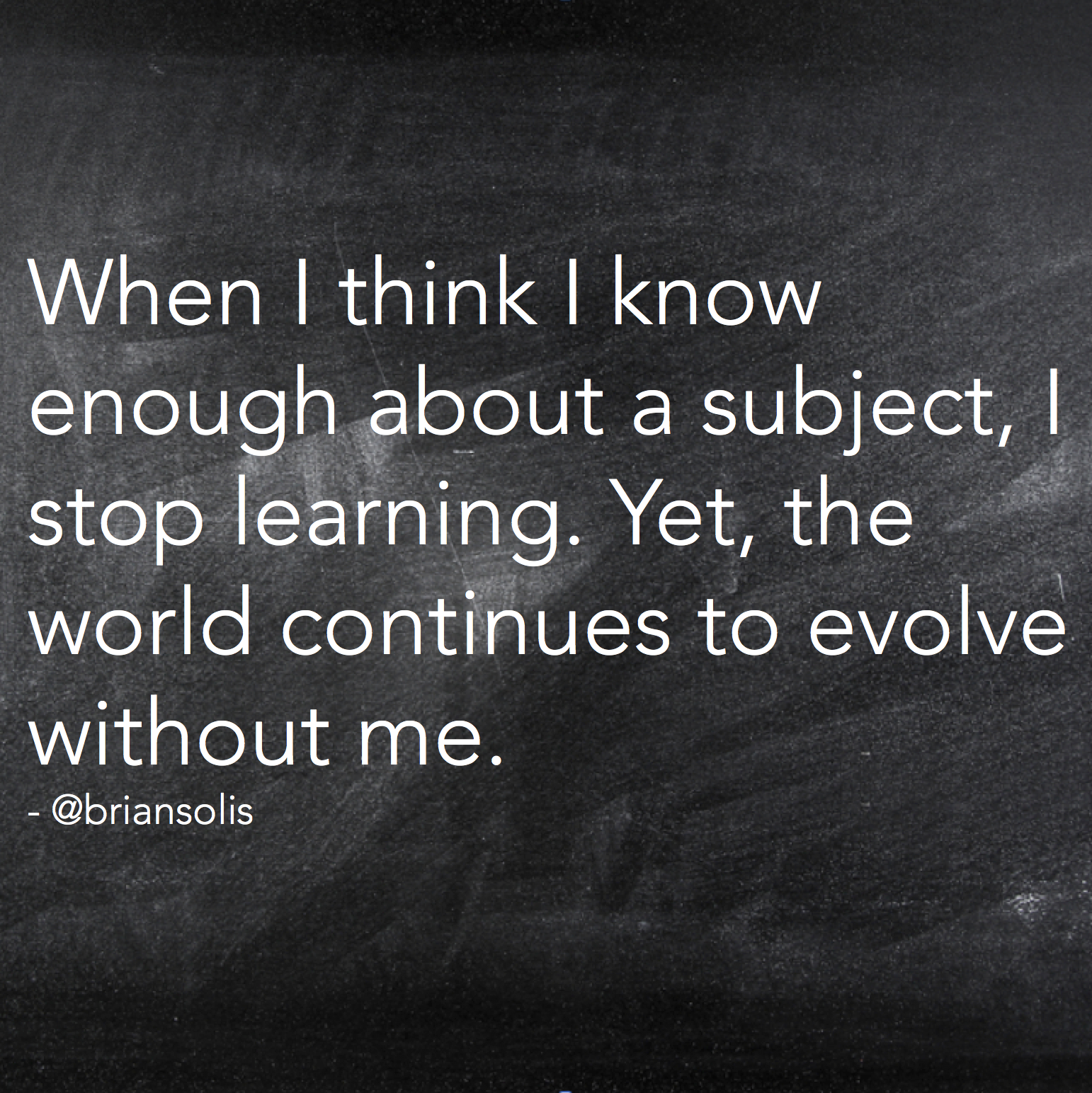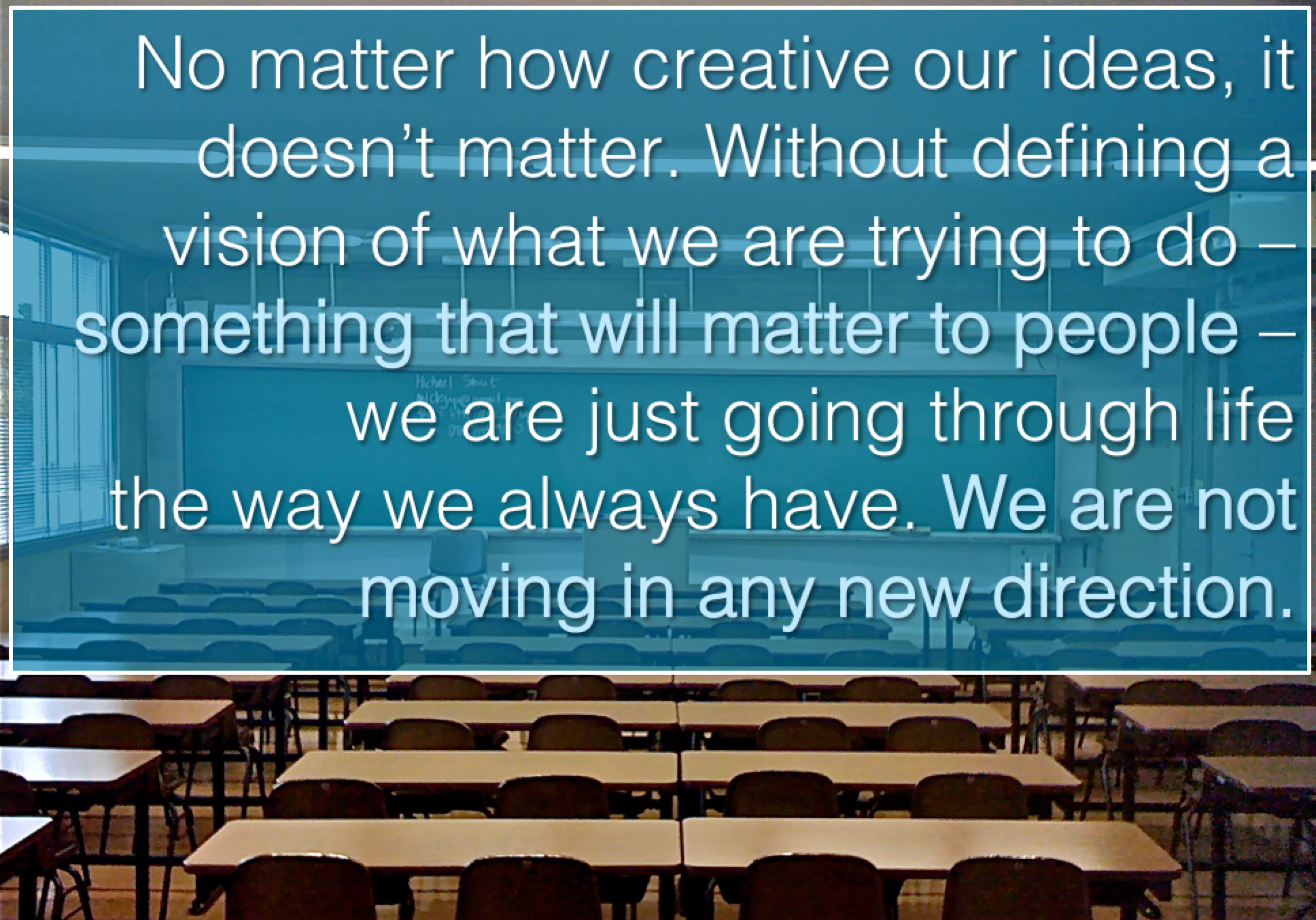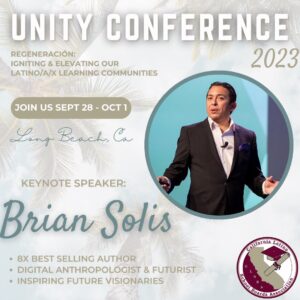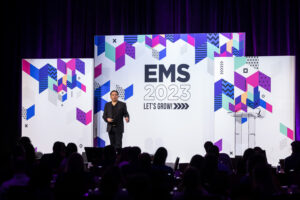Here’s a story I haven’t shared much, but I’m doing so now because of an opportunity I recently had to present at the Learning Technology conference in London. Over the last two years, I’ve personally studied learning technology and also learning behaviors to relearn how to engage Generation C through analog and digital media.
While writing WTF, I studied the learning patterns and preferences among Generation C and how they differed from less connected students. What I learned reshaped how I assemble and present material, how I write, and how I visually communicate. Furthermore, it inspired me to restyle the UI, design and layout, and the flow to function and look less like a traditional printed book and instead perform with the familiarity of a digital medium in an analog package. For those who have read the book, this explains the square shape and four-color format as it mimics a screen. This work also represents why there’s a navigation bar throughout the book and graphical breaks that are presented with cadence.
In the end, this experience made me rethink everything. If I could take these learnings into a book, could it apply to conventional text books? Could it encourage a new way to teach rather than force students to conform to customary methods? What was clear though is that technology plays a part in all of this but the real story was influenced by behavior…behavior that’s different than the world I know. As tempted as I was to apply these resources to building a killer digital app for the book, it was a lesson to re-examine everything we take for granted today, everything we do simply because it’s the way things have always been done, and more importantly, a lesson in restraint. By restraint, I mean holding back from using technology for the sake of technology and instead take a few steps back to take something ordinary and make it matter in a digital society.
As a result of this work, I was invited to present at Learning Technologies in London to share my experience and outlook on the future of education and training. Ahead of the event, I spent some time discussing my presentation with Jon Kennard of Training Zone. I wanted to share that conversation here…
Why go all the way to London to talk about the future of learning?
Learning Technologies is one of the most prominent events where the discussion of technology versus behavior needs to gain momentum. I was more than excited to share my research…I was also eager to learn from other experts from around the world.
A, B, C, Easy as Can’t Teach Me
I see Learning Technologies as an opportunity to share and learn from those defining the future of learning and those also confused, frustrated or intimidated by it. Technology, taking learning out of the discussion for the moment, is part of the solution but it’s also part of the problem. In my research, I explore the dynamics of human behavior from a bottom-up or escalation perspective. Whether you’re a student in university or an employee learning new skills or procedures at an organization, the philosophies and systems governing education are traditionally designed from that of a top-down approach. Yet how we use technology in our real life is completely different than how businesses or schools are using it to teach me. There’s an incredible disconnect and the gap is only getting wider.
Let me give you an example…
In the past, education was something designed by experts who assembled the knowledge sources and materials necessary to prepare students for the next related subject or perhaps for a particular profession or overall direction. As technology was introduced into our everyday culture, it did so usually from the top down, typically in work or school simply because of the high purchase and management costs. Here, technology was meant to increase efficiencies, reduce long-term costs, and improve the dynamics for learning. Organizations were initially responsible for how we were introduced to technology and therefore how we used it. This process largely governs how we learn today.
As cost and adoption barriers fell, technology worked its way into consumer homes. With the rise of social and mobile, technology is now part of our everyday lifestyle. The result however, is that consumer familiarity with technology and how quickly they adopt and incorporate it into all they do has outpaced that of companies and institutions. The impact is profound. People are learning, communicating and collaborating differently in their personal life. Yet elsewhere, they’re expected to follow dated protocol that is at best counter-intuitive. This is causing a revolt which is only going to become increasingly dire as time and technology progress.
Students, employees, are fueling an escalation of expectations and demands to do things differently. At the same time, decision-makers are struggling to figure out why investments don’t pan out according to plan. They still see how people use technology as novelty and even frustrating because it’s always compared to the way the world was and not the world as it’s changing. The only way to take a meaningful step forward is to understand how to adapt legacy investments, systems and processes to pave the way for a more engaging and productive future for all.
Right now, we take new technology and give it to an architect who already sees the world differently, the way it’s always been. Therefore they take something that’s native to a new world and forces it to comply within a legacy paradigm defined by dated philosophies, systems, and reward systems.
No matter how creative our ideas, it doesn’t matter. Without defining a vision of what we are trying to do – something that will matter to people – we are just going through life the way we always have. We are not moving in any new direction.
“What’s key to understand is how people are using technology and how their behaviors, values, and expectations have evolved. Once you do, you’ll see that technology becomes an enabler for something more natural”
Learning Starts with Unlearning
Said simply, the answer is not technology. Moreover, don’t force conformity because it’s the way you learned or because you’re forced to use legacy as a starting point. If you do, you will follow the ongoing march of complacency that throws technology at problems and each time with similar, lackluster or failing results. What’s key to understand is how people are using technology and how their behaviors, values, and expectations have evolved. Once you do, you’ll see that technology becomes an enabler for something more natural, creating a culture of learning and collaboration that’s more intuitive, organic, and successful. This gives rise to more than IT or technology experts. Digital anthropologists and other social and data scientists will help us empathize with a connected generation or Generation-C as I call them, to lead instead of react to each trend.
Everything starts with you. I understand it’s difficult and daunting. After all, there’s a reason why change is either slow or ignored. It takes courage to break what isn’t yet broken and rebuild it in a way that others can’t yet visualize, appreciate or support.
This is a time to rethink…everything. And, what a wonderful time it is to be alive for those who can see these challenges as opportunities to invent and reinvent all that makes the world go ’round.
Connect with me: Twitter | LinkedIn | Facebook | Google+ |Youtube | Instagram
Image credit: Shutterstock







Amen, brother! I helped found a learning tech company along with a genius tech friend who understood Generation C and two traditionalists who did not. It was an ongoing battle to get the traditionalists to comprehend the value of learning behaviour vs learning technology. Ongoing engagements with Universities and Governments forced the product to conform to the ‘pedagogy’ of the day, basically replicating the top down, force fed paradigm that has existed for centuries. The technology was built with the generation C behavioural capabilities, but it is only being executed in a controlled, canned and contrived manner. The disruption of education will happen, but only by people with the fortitude to do it.
Keep up the good fight…
Bill
You are right. It’s about fortitude. It may also help to recognize that the gatekeeprs of the old paradigm are overly invested in it…sometimes easier to do the Peter and Paul territory split…take the road Paul went down – those folks were open to new religion!
Gen C got it a while ago…just didn’t have the power to influence the old school – no pun intended. It’s has to happen…
Brian, Great Article! The moment people accept the status quo, you might as well burn down the building and fire everyone. The one thing that must remain constant if technology is to advance is change, rapid, sometimes rabid change. Man, I am going read this again. It’s that good!
Excellent Gregory! Cheers!
Interesting ideas – and I mostly agree – but there’s really no such thing as “unlearning.”
Tom Woodward said it well recently:
http://bionicteaching.com/unlearning/
Great piece, Brian, thanks for this. In selecting an MBA program, I was looking for something completely different, but with the understanding that my investment of time and money had to be valuable and I had to find a return on that investment. The MBA program through Western Governor’s University took the idea of learning to a different level, encouraging students to find their own resources but offering good places to begin. And using history – case studies – to identify patterns and look to the future. That’s what I try to do with my children; I don’t offer them the tools to do something, we talk about what tools & resources they think they’ll need and we find those together. It’s so different from how I grew up, being given a text book with the expectation that the book is the world and the truth for that subject area. Very little exploration was necessary or required. I love being able to use technology to help my children learn differently from how I learn. Excellent.